In the intricate world of environmental regulation and compliance, the Form 3400-179 Notice of Intent (NOI) plays a pivotal role for nonmetallic mining operations within Wisconsin. Drafted by the Department of Natural Resources, this form lays the groundwork for ensuring that process wastewater and stormwater discharges from these operations align with the requirements of the Wisconsin Pollutant Discharge Elimination System (WPDES) generalized permit No. WI-0046515-5. As a mandatory submission for operators seeking permit coverage under both the federal and state guidelines, its importance cannot be overstated. With the threat of significant forfeitures for unauthorized discharges looming large, the document seeks comprehensive insights into the operational aspects of nonmetallic mining, including but not limited to, the identification of potential contaminants, current wastewater treatment practices, and the overall management of stormwater runoff. Furthermore, it delves into company-specific information, process wastewater details, and requires a thorough mapping of the site's water flow patterns, thereby underlining the state's commitment to preserving water quality. The form also opens channels for site-specific permit applications, should the need arise, based on the presence of harmful substances in the discharge, showcasing a tailored approach to environmental stewardship. By ensuring accurate and complete information through the NOI, Wisconsin sets a stringent yet clear pathway for environmental compliance, underscoring the critical balance between industrial operations and natural resource protection.
| Question | Answer |
|---|---|
| Form Name | Form 3400 179 |
| Form Length | 5 pages |
| Fillable? | No |
| Fillable fields | 0 |
| Avg. time to fill out | 1 min 15 sec |
| Other names | wastewaters, WPDES, BHC, E-mail |
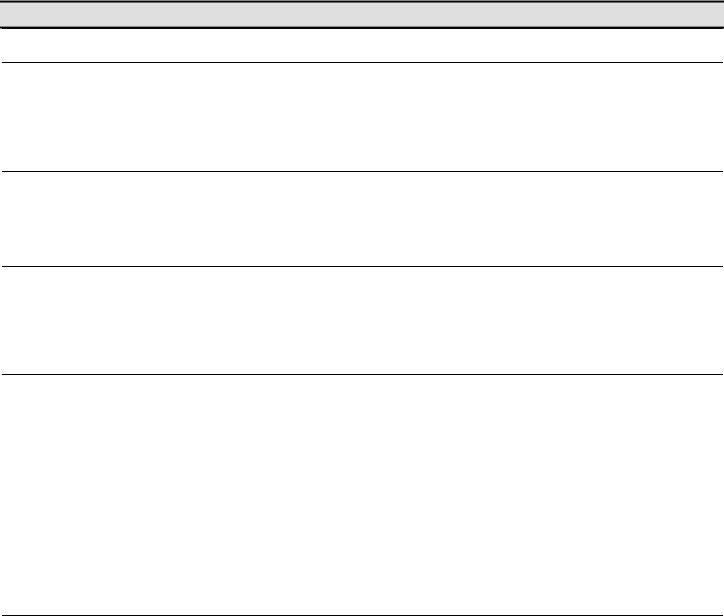
N OTICE OF IN TEN T
State of Wisconsin |
Information Summary for Nonmetallic Mining Operations |
|
Department of Natural Resources |
||
Form |
||
|
As authorized in NR 216.26, Wi. Adm. Code, the Department of Natural Resources (the Department) will use the information requested on this form to determine if process wastewater and/or stormwater discharges from nonmetallic mining operations are eligible for coverage under the Wisconsin Pollutant Discharge Elimination System (WPDES) generalized permit No.
Enter N/A for questions not applicable to your operation.
Section I: Parent Company/Owner Information – To be completed by all dischargers
Company/Owner Name
Contact Name |
Last |
First |
MI |
Title |
|
|
|
|
|
|
|
Street Address |
|
|
City |
State |
Zip Code |
|
|
|
|
|
|
Phone Number |
|
Fax Number |
|
|
1. What are the Standard Industrial Classification (SIC) codes for your company’s nonmetallic mining operations?
1410 |
Dimension Stone |
1420 Crushed and Broken Stone |
1440 Sand and Gravel |
1450 |
Clay, Ceramic & Refractory |
1470 Chemicals & Fertilizers |
1480 Nonmetallic Mineral Services |
Others?
2.Has your company been issued any other wastewater (WPDES) permits that authorize the discharge of other wastewaters (such as from asphalt or concrete operations) to Wisconsin surface or underground waters?
Yes |
List the site names and WPDES permit numbers: |
No
3.To the best of your knowledge, do any of your operations have process wastewater (from aggregate washing, pit dewatering, stack scrubbing, boiler blowdown, etc.) that contains any of the substances listed below? ______ Do any of your sites have stormwater that comes in direct contact with any of the substances listed below? ______ Check all the substances that apply.
|
|
|
alpha – BHC |
Dieldrin |
Chlordane |
Mercury |
Mirex |
Octachlorostyrene |
Photomirex |
PCB |
Pentachlorobenzene |
|
|
|
Toxaphene |
gamma - BHC (Lindane) |
tech. – BHC |
Hexachlorobenzene |
Hexachlorobutadiene |
|
Other substances that are known to be harmful to human health or aquatic life (such as solvents or dissolved metals)
If you answered yes to either question above, and any of the above substances are checked, you may be required to segregate that wastewater and not discharge it to waters of the state. If you wish to pursue obtaining a permit to discharge wastewater containing these chemicals, indicate that you want the Department to send an application for a site specific WPDES discharge permit by checking here .
Check here if none of the above substances are expected to be in the discharge.
4.To the best of your knowledge, have any leaks, spills, overflows or similar instances resulted in contamination of stormwater runoff from any of your nonmetallic mining operations in the last three years?
Yes List the site names and actions taken to prevent future problems, (attach additional sheets if necessary).
No
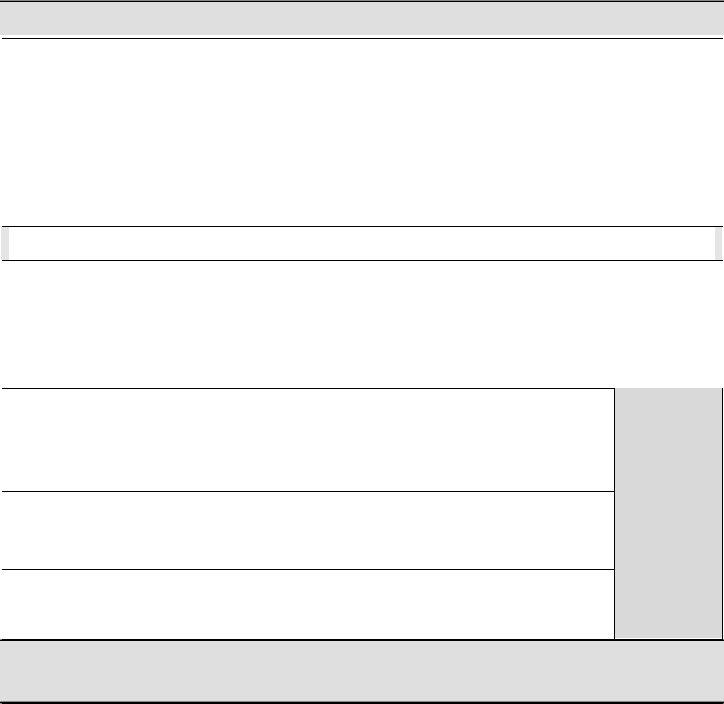
N OTICE OF IN TEN T
State of Wisconsin |
Information Summary for Nonmetallic Mining Operations |
|
Department of Natural Resources |
||
Form |
||
|
Section II: Site/Property Information – To be completed for coverage of individual mine sites. Make copies of this section or use a table format to apply for more than one mining site. (Go to Section III to apply for a mobile equipment operation whose sites are not known at this time)
Site/Property Name |
|
|
|
Site/Property Identification # [FID] (if known) |
||
|
|
|
|
|
|
|
Contact Name |
Last |
First |
MI |
|
Title |
|
|
|
|
|
|
|
|
Street Address |
|
|
City |
|
State |
Zip Code |
|
|
|
|
|
||
Property location: Qtr/Qtr Quarter Section |
Township |
Range |
County |
|||
|
|
___ N |
____ E W |
|
|
|
|
|
|
|
|
|
|
Phone Number |
|
Fax Number |
|
|
||
Attach a site map, such as an air photo, USGS topographic map or survey map, showing the mining site location, the nearest public roadway
and surface water resources within 1000 feet. Wastewater treatment, seepage and discharge points should also be shown.
1.What is the flow pattern of stormwater
Externally Drained – storm water that contacts mining areas, processing areas or stockpiled materials runs beyond the site property boundary. External drainage includes storm water to ponds or drainage channels that overflow to areas outside of the mining site property boundaries.
Internally Drained – storm water runoff is captured within the mining site. All storm water that contacts mining areas, processing areas or stockpiled materials runs off to onsite seepage areas or ponds that retain the water within the site property boundaries.
Internally Drained, but the storm water is discharged to
2.Briefly describe the industrial activity at this site. What Standard Industrial Classification (SIC) code would the operation be included under? Are there any adjacent mining, concrete or asphalt operations?
3.Is this site to be “permitted” for the discharge of mining wastewater (such as from mine dewatering pumpage, product or equipment washing, cooling, etc.) to surface waters, wetlands or seepage areas?
Yes, and section IV has been used to describe the mining process wastewater discharges
No
4.Check here , if ALL of the site’s process wastewater and stormwater goes to a municipal or sewerage district treatment plant that has its own WPDES discharge permit. Such a mining site does not need an additional WPDES permit. If future operations at this site result in a direct discharge to waters of Wisconsin, you will need to inform the Dept.
For Department
Use Only
G. P. Coverage
Individual Permit
NPR
Section III: Mobile Unit Information – To be completed for coverage of a machinery group or “spread” that
operates at a number of sites. This section may be copied for describing multiple machinery groupings. Also, complete property descriptions (using section II, above) for any known or expected operating sites, so that discharge permit eligibility can be established prior to the start of operations.
Mobile Unit Operator Name/Contact |
Last |
First |
MI |
Title |
|
|
|||
Facility Identifier (FID) # (if known) |
Anticipated Sites for Mobile Unit Operation [attach additional sheets if necessary and check here ] |
|||
|
|
|
||
Phone Number |
Mobile Phone Number |
|||
|
|
|
|
|
Number of Wash plants |
|
Number of Crushing plants |
|
|
|
|
|
|
|
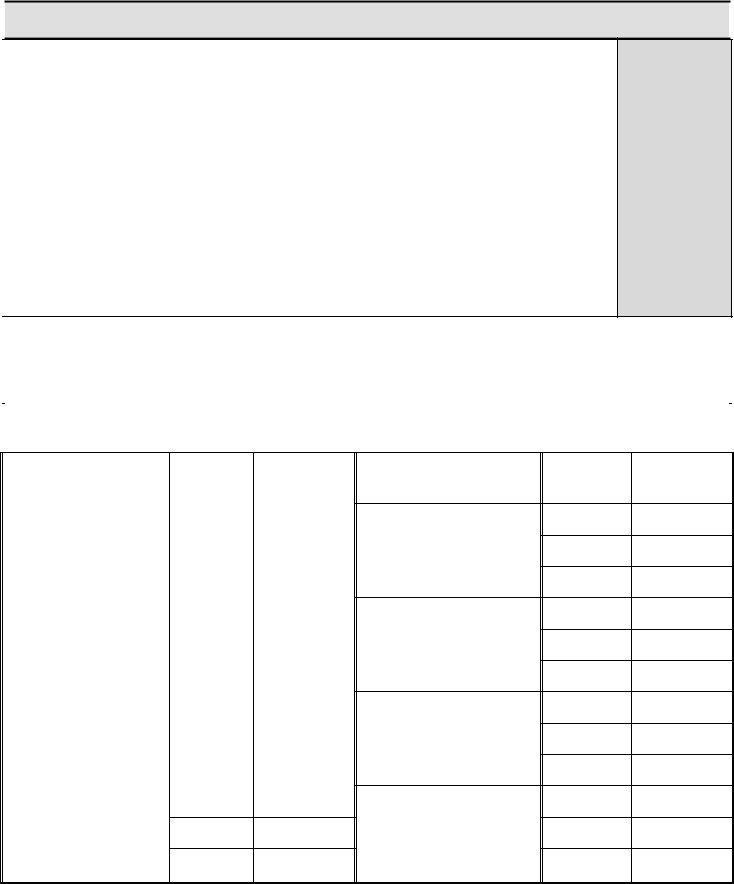
N OTICE OF IN TEN T
State of Wisconsin |
Information Summary for Nonmetallic Mining Operations |
|
Department of Natural Resources |
||
Form |
||
|
Section IV: Mining Process Wastewater Information – To be completed for sites or equipment that discharge wastewater generated during the process of mining.
1.Indicate the receiving water for the process wastewater discharges. Check all that apply. (NOTE: Part 3, below, describes types of process wastewater. An outfall is an individual discharge point , such as a seepage pond bottom, or a sewer pipe, channel, or ditch that conveys the wastewater to underground water or surface water resources).
Seepage to Groundwater (this includes infiltration of wastewater through the soil via drain fields, seepage areas, pond bottoms, ditches, trenches, etc. that do not reach surface water resources).
a.Outfall #(s):
Discharge to Surface Water Resources (this includes surface water drainage ways that contain aquatic life, tributaries, protected wetlands, creeks, streams, rivers, lakes, etc):
a.Outfall #(s):
b.How far is it from the discharge point to a surface water resource (i.e. distance traveled through storm sewers or
drainage ditches)? Less than 1000 feet |
Between 1000 and 5000 feet |
Greater than 5000 feet |
c. What is the first named surface water the discharge enters?
d. If the discharge is to a wetland indicate whether it is believed to be natural or artificial
Municipal or Sewage District Treatment Plant – Outfall #(s):
These discharges would travel in a sanitary sewer to an
For Department
Use Only
Eligible
Ineligible
ERW
ORW
NR 103 Completed
NPR
Additive
Yes
No
2. Are water treatment or conditioning additives used in waste streams that are discharged to surface waters or seeped into groundwater?
No |
No water treatment additives (such as, separation aids, boiler treatments, scale/rust inhibitors, biocides, chlorine, etc.) are used. |
Yes |
Additives are used and described in Appendix A. Are any of the additives considered a biocide? No Yes (Biocides are |
|
designed to control biological growth, such as algae, in tanks, cooling towers, and other equipment)? |
3. List the Process Wastewater Types and Flows. Common types of mining process wastewaters are listed below. “Other” process wastewater types could be softener regeneration wastewater, scrubber water or wastewater from internal building floor drains. Dust suppression water may be omitted if there is no runoff. Outfalls described below should be located on the site map requested in Section II, page 2.
Type of Wastewater |
Outfall # |
Average Daily |
|
Flow |
|||
(check all that apply): |
(#1, #2, etc.) |
||
(gallons per day) |
|||
|
|
||
|
|
|
|
Washwater Associated with |
# |
|
|
Material Processing |
|
||
|
|
||
|
|
|
|
|
# |
|
|
|
|
|
|
|
# |
|
|
|
|
|
|
Mine Site Dewatering |
# |
|
|
|
|
||
|
|
|
|
|
# |
|
|
|
|
|
|
|
# |
|
|
|
|
|
|
Noncontact Cooling Water, |
# |
|
|
Condensate or Boiler |
|
||
|
|
||
Water |
|
|
|
# |
|
||
|
|
||
|
|
|
|
|
# |
|
|
|
|
|
|
Vehicle or Equipment |
# |
|
|
Washwater |
|
||
|
|
Type of Wastewater (check all that apply):
Sanitary wastewater from toilets, sinks, etc. If the sanitary waste- waters are not mixed with the mining process water, write the type of sanitary waste treatment system in the daily flow column in place of a flow estimate.
Other (describe type)
Other (describe type)
Other (describe type)
Outfall # |
Average Daily |
|
Flow |
||
(#1, #2, etc.) |
||
(gallons per day) |
||
|
#
#
#
#
#
#
#
#
#
#
#
#
#
#
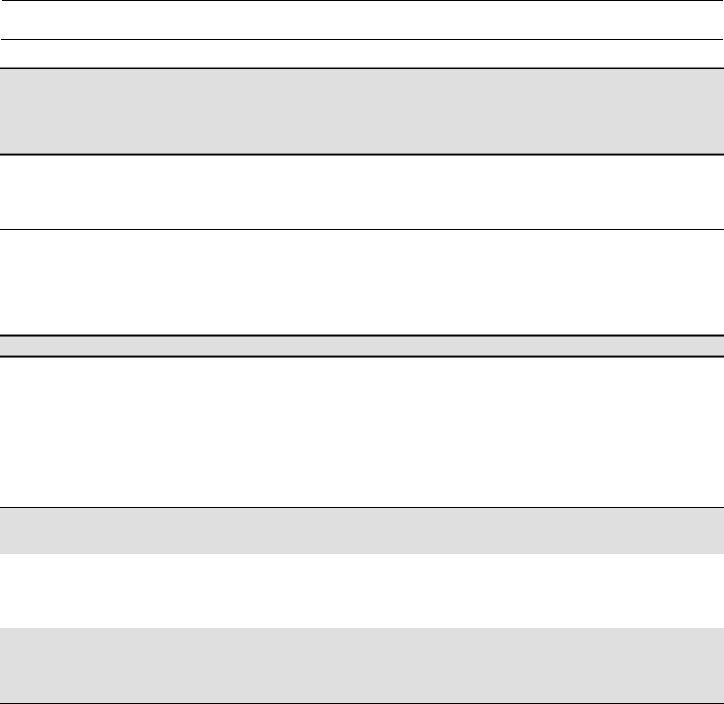
N OTICE OF IN TEN T
|
State of Wisconsin |
|
Information Summary for Nonmetallic Mining Operations |
|||
|
Department of Natural Resources |
|
||||
|
|
|
|
(03/2010) Page 4 of 5 |
||
|
|
|
|
Form |
||
|
|
|
|
|
|
|
|
Section V: Signatory Requirements |
|
|
|
|
|
|
Information about the person completing this form: |
|
|
|
|
|
|
|
|
|
|
|
|
|
Name, Last |
First |
|
MI |
|
|
|
|
|
|
|
|
|
|
Street Address |
|
City |
State |
Zip Code |
|
|
|
|
|
|
|
|
|
Phone Number |
Fax Number |
|
Email Address (if available) |
|
|
Title of the person completing the form.
Check here if you should receive Discharge Monitoring Reports (DMR’s) for annual reporting of discharge test results.
Official Representative’s Signature. This form must be signed by the official representative of the permitted facility who is: the proprietor for a sole proprietorship; a general partner for a partnership; a principal executive officer, ranking elected official or other duly authorized representative for a unit of government; a member or manager for a limited liability company; or, for a corporation, an executive officer of at least the level of vice president, or by the executive officer’s authorized representative having overall responsibility for the operation of the facility. If this form is not signed below, or is found to be incomplete, it will be returned.
I certify that I am familiar with the information contained in this application and that to the best of my knowledge and belief such information is true, complete and accurate.
Printed or Typed Name of Official Representative |
Title |
|
|
Signature of Official Representative |
Date |
MAIL COMPLETED APPLICATION TO:
Insert Regional Department Address Here
For Department
Use Only
Date Application Received: |
|
|
Date permit coverage approved: |
|
|
||
|
|
|
|
|
|
|
|
Status: ___ |
Denied |
Internally Drained - Yes |
No |
AFSCI Frequency |
– |
Annual |
1 per 3 years |
___ Approved |
SWPPP Required - Yes |
No |
Contaminant Control System Insp. - ¼ly |
1 per 3 years |
|||
___ |
Specific permit |
Site Number or FIN: |
|
Visual Runoff Quality Check |
- ¼ly |
1 per 3 years |
|
Comments:
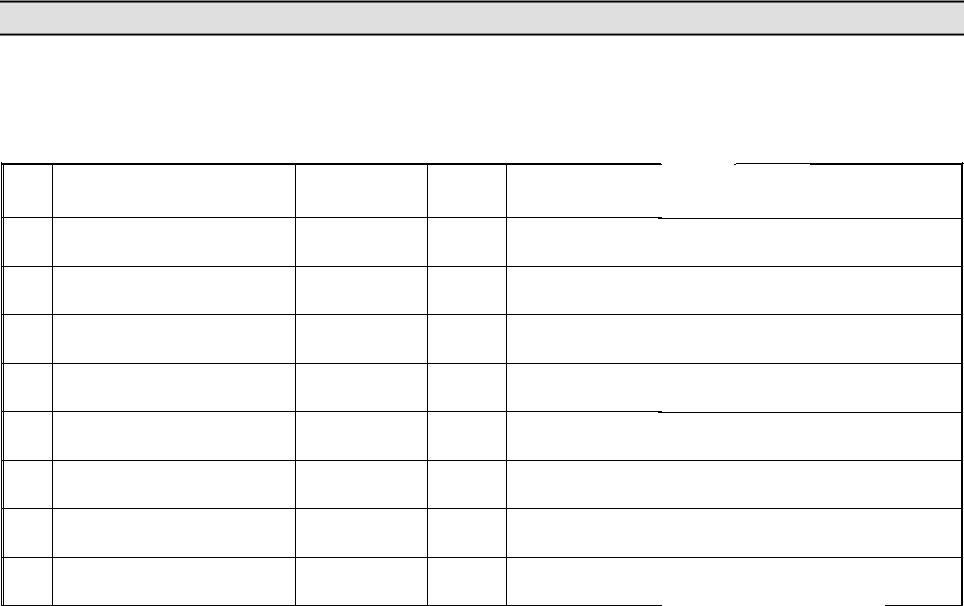
State of Wisconsin
Department of Natural Resources
N OTICE OF IN TEN T
Information Summary for Nonmetallic Mining Operations
Form
APPENDIX A - WATER TREATMENT ADDITIVE INFORMATION
[Use this appendix to provide details on the additives affirmed to be used in question #2, Section IV on page 3]
Submit the following information for each water treatment or conditioning additive that could be contained in the wastewater discharged to seepage or surface waters:
a. Commercial name, and the amount or concentration of the additive that will be used. |
|
b. Proposed frequency of usage, and the anticipated discharge concentration of the additive. |
NOTE: The information requested in this section should |
c. Material Safety Data Sheets (MSDS's) for each additive. |
be available from your additive supplier |
If your discharge enters a surface water, you must also submit the following information:
d.At least one
If available from suppliers:
Outfall
#
Additive Name and Manufacturer
Additive Type
Biocide, pH adjuster, scale, inhibitor, rust inhibitor, etc.
Amount or
Concentration
Used
(mg/l or lbs/day)
Anticipated |
Frequency of use |
|
Discharge |
||
(Continuous, |
||
Concentration |
||
1x/week, etc.) |
||
(mg/l) |
||
|
||
|
|
Daphnia Magna |
Fathead Minnow |
Rainbow Trout |
LC50 or EC50 |
LC50 or EC50 |
LC50 or EC50 |
(mg/l) |
(mg/l) |
(mg/l) |
|
|
|
Blue Gill
LC50 or EC50
(mg/l)
ATTACH MATERIAL SAFETY DATA SHEETS (MSDS's) TO BACK OF THIS APPENDIX